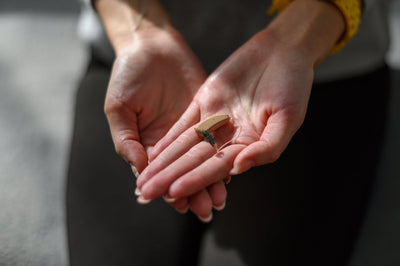Choosing the Right Hearing Aid for Seniors
If you have a senior family member or friend, you know they may be experiencing issues related to hearing loss. Hearing loss can affect seniors by making it difficult to communicate with others, and some may experience feelings of isolation. A visit to the doctor can confirm these issues.
In such situations, you should consider purchasing a hearing aid for your loved one. The best hearing aids can make a huge difference in the life of an older adult. There are numerous things you need to keep in mind while selecting a hearing aid, including:
1. Consider Usability Before Anything
The best hearing aids do not necessarily mean the most expensive models. Rather, they are the ones that are simple to operate and adjust. Before you choose any particular model, ensure you can use it easily. A hearing aid that is not comfortable can lead to stress, a headache, and even earache. This can affect your health in many ways and make it difficult to continue usage.
2. Determine What Are the Most Important Features
Because of the high number of models available today, you must make sure you understand what features you must have in a hearing aid device. This way, you can make sure your purchase is worth the money. Some features you can look for include:
- Bluetooth Connectivity
- Wireless Connectivity
- Frequency Range
- Intelligibility
- Directional Microphones
- Noise Reduction
- Sound Quality
- Volume Adjustment
- Speech Directionality
- AC Power and Rechargeable Hearing Aid Battery
3. How Much You Are Willing To Spend
Wearing a hearing aid is often a long-term commitment, and with several models available today, it is important to understand how much you are willing to invest in an aid. The cost of digital hearing aids has greatly dropped in the last few years, and you can get a quality device for a reasonable cost. This allows you to purchase devices for the entire extended family.
4. Consider Sound Quality
Hearing aid devices today are manufactured with sound quality in mind, so you should base your purchase on this. The best hearing aids are those that are able to produce crisp and clear sound and that can pick up noises you may not hear on your own. There are even models that are able to transmit stereo sounds that are similar to what you hear with your own ears.
5. Finding the Right Fit
Hearing aids are often size-specific and may not fit properly unless they are the right size. This is why you should ensure the device you get has custom sizing options. In most cases, the process of fitting a hearing aid is simple and takes a few minutes. You will need the right size for you to be able to wear it properly, and it should be comfortable as possible.
6. Look for Cleaning and Maintenance Instructions
You will need to clean your hearing aid regularly, and this means it must have instructions on how to do so. You should also find out how often it should be replaced. If it is a custom device, how do you replace it if it breaks or stops working properly? These are important questions to ask the hearing aid dealer, or you can look for the answers on the internet.
Conclusion
If you or your relative is suffering from hearing loss, the best thing to do is visit your doctor or a hearing care professional to have it diagnosed. This way, you will be able to know what causes this condition and how to address it. In simple cases, you can use normal hearing devices that are available over the counter. However, if your hearing loss is severe or permanent, you should consider having a professional fit you with a sophisticated hearing aid device.
At HearGlow, we understand how important it is to find the right hearing aid that suits your needs and budget. That's why we offer accessible and affordable hearing devices designed for comfort and utility. By reducing the cost of manufacturing quality hearing aids, more people are now able to restore their hearing and improve their quality of life. View our collection of hearing aids to find which one suits you best.
Related Articles



